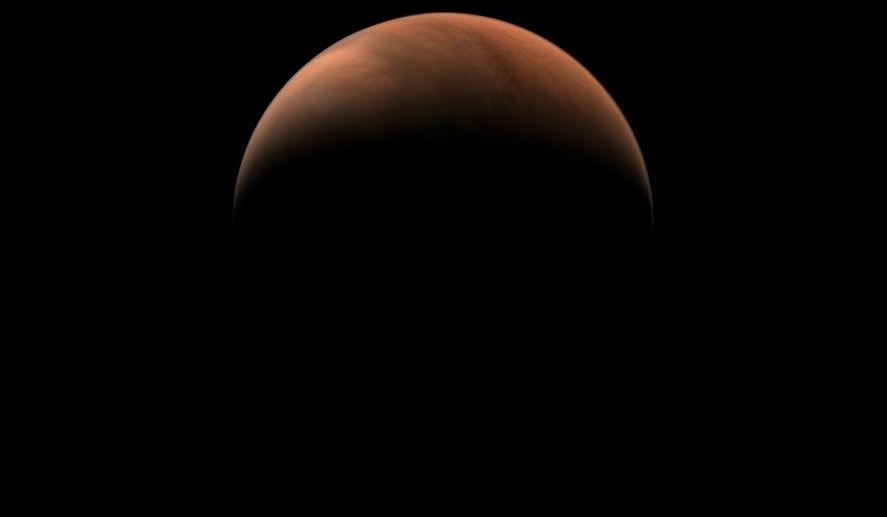 Photo taken on March 18, 2021 shows an image of Mars captured by China's Tianwen-1 probe. (CNSA/Handout via Xinhua)
Photo taken on March 18, 2021 shows an image of Mars captured by China's Tianwen-1 probe. (CNSA/Handout via Xinhua)Most planets in the universe may eventually become "rogue" and drift through space without orbiting a star, according to a new study by the Israel Institute of Technology, the Israel Space Agency said Monday.
These rogue planets are thought to be ejected from their original planetary systems and set adrift due to gravitational interactions with neighboring planets.
Using advanced computer simulations, researchers studied how planetary systems evolve.
They found that the gravitational pull between planets often leads to instability, pushing many planets out of their systems. Depending on how many planets are in a system, 40-80 percent may eventually be ejected.
Most of these ejections occur within the first 100 million years after a system forms, but some can happen as late as one billion years after formation.
Once ejected, these planets travel through space at relatively slow speeds -- between 2 and 6 km per second. For comparison, Earth orbits the Sun at over 30 km per second.
The study also found that systems with many planets are more likely to become unstable over time. In systems with a large number of planets, about 70 per cent are eventually ejected.
Heavier planets are more likely to remain in orbit, while lighter ones are more easily lost.


![[PHOTOS] Ruto at Pope Francis' burial](/_next/image?url=https%3A%2F%2Fcdn.radioafrica.digital%2Fimage%2F2025%2F04%2F844cb891-abd4-4ee5-bc2d-2a0c21fa3983.jpeg&w=3840&q=100)






